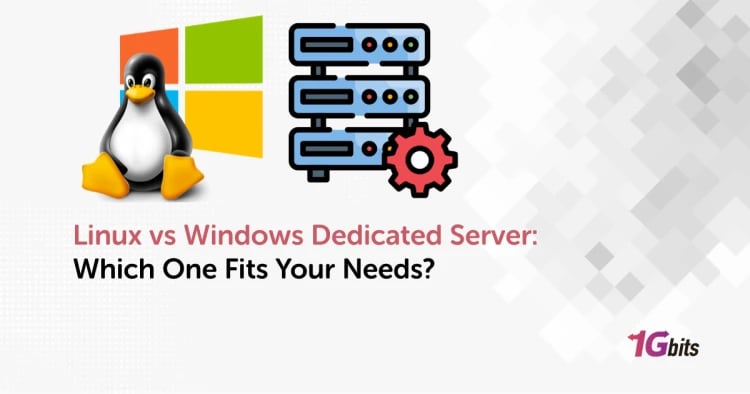The most basic definition for what is a proxy server is as follows: a proxy server is a router or system bridging the gap between internet users and the internet. That makes it an intermediary server. It retrieves data from internet sources like webpages on behalf of users and provides extra data security, subsequently protecting private networks from malicious internet activity and hacking.
When you connect your computer to the internet, it has to use an IP address. It is similar to a street address in that it directs the incoming data on where to go and marks the outgoing one with a return address for authentication. A proxy is an online computer that has its own IP address. These types of servers play different roles depending on type and configuration.
Some of the most common uses are bypassing geo-blocking, regulating website requests, and enabling anonymous online browsing. It is necessary to remember that proxy servers don't encrypt online traffic.
Why do organizations need private proxy servers?
There is a real need for private proxy servers within corporations today. Here is why:
1. Protection against hackers
Whether large or small, every organization has private data that they must keep confidential and protect against malicious use at all costs. That is why most corporations have vigorous IT departments to set up different architectures, create passwords, and encrypt their data. However good the department is, there is always the likelihood of information getting hacked, especially if the IP address is easily accessible.
Proxy servers prevent this by preventing hackers from being able to track an organization's original IP address. Instead, the data that these hackers can see is derived from a different address.
2. Caching content
Proxy servers help websites to cache their content. Doing so enables businesses to access the data that they frequently open faster.
3. To filter content
A proxy plays an important role in filtering out content that fails to follow an enterprise's web application policies. It makes it possible to provide user URL request logs and authenticate users.
4. To examine payloads
Thanks to proxies, it is possible to examine payloads and packet headers of the nodes present in your internal server's requests. Therefore, every access to social sites is easily trackable and can be restricted.
Types of proxy servers
As mentioned before, there are different types of servers, and each plays a different role. Below is a list of some common proxies.
1. Forward proxies
A forward gateway provides services to a single client or a group of clients. There are probably over 100,000 open forward proxies today on the internet. It stores and forwards internet services such as web pages or DNS to control and reduce clients' bandwidths.
A forward proxy can also be an anonymous proxy, allowing users to conceal their IP addresses while surfing online or using various internet services. TOR (The Onion Router) is an example of such proxies since it helps users achieve anonymity by routing their internet traffic through several proxies.
2. Public proxy
These proxies are available to any user and work by providing them with IP addresses to conceal their identity. Although the proxy is easily accessible and cheap, it exposes users to a higher risk of getting their data breached.
3. Reverse proxies
True to their name, reverse proxies do the opposite of what forward proxies do. A reverse proxy works on behalf of the servers and can conceal their identity. They are fixed at the front of servers to assess and direct requests from the browser to the server.
A reverse proxy has several uses. It is used for load balancing, where it distributes data load to multiple servers. Second, it caches static content such as pictures to offload web servers. And lastly, it compresses and optimizes content to reduce load time.
4. Residential proxy
These proxies give users an IP address that is traceable from a specific physical device. All requests are redirected and also assessed from this device.
5. Transparent proxy
A transparent proxy is an interesting type of proxy because it can be utilized to remain concealed from those that it has been enforced upon. Most times, their users don't know that they exist. It is useful if you want to implement a proxy at your organization without making the employees aware that they are using one.
Parents and employers who want to monitor online activity by their children or employees can also use them. You can also block users from accessing certain websites or even save bandwidth. Hotels and cafes popularly use them to authenticate public Wi-Fi users. A transparent proxy is more vulnerable to certain security threats like SYN floods.
6. Shared proxies
They provide users with a shared IP address, enabling them to engage with the proxies within a certain time frame.
7. Data center proxy
It is a proxy server that is physically locatable in a data center from where it assesses and redirects users' requests. The server has no association with any internet server but rather a separate organization via this data center.
8. TOR proxies
These servers direct data across multiple global networks to obscure users' IP addresses. For further protection of privacy, encryption is done in multiple layers. Each encryption layer is decrypted to access the original data when this data arrives at the intended destination.
9. Anonymous proxy
Anonymous proxies work to hide internet activity by assessing requests while concealing identity.
10. High anonymity proxy
This is simply a type of anonymous proxy. The only difference is that it takes extra measures to conceal users' identities by deleting their information before the proxy initiates a connection to the target site.
11. SSL proxy
SSL is the acronym for secure sockets layer. This proxy encrypts data being sent back and forth on either side, enhancing protection. They are good for organizations that want to boost their security further.
12. Distorting proxy
This proxy server changes its IP address to hide users' identities from target websites. It is great for those that want to conceal their location while browsing the internet.
Here are some other common proxy servers:
- Rotating proxies – designate different IP addresses to users
- 12P proxies – Similar to TOR proxies but offer more security
- Suffix proxies – Used to bypass website filters by adding the proxy's name to the URLs of the requested content.
Conclusion
So, what is a proxy server? A proxy server is vital because it offers different levels and types of anonymity to its users. Therefore, you need them whether you are a service provider or a client. When you get a proxy server, you will be able to enhance the security of confidential information and internal networks.









